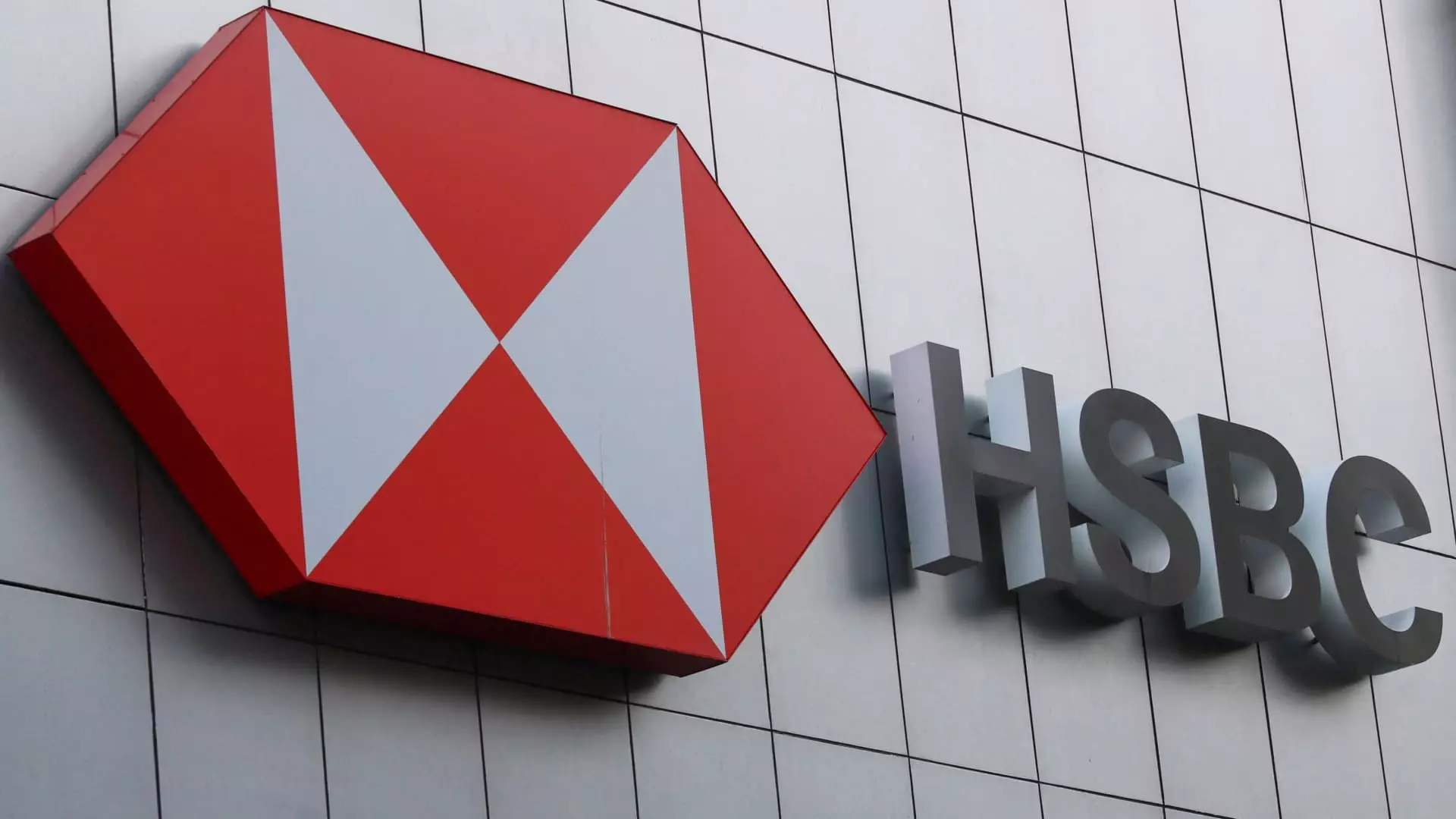In a significant update for investors, HSBC Holdings PLC, Europe’s largest banking institution, declared a substantial share buyback of up to $2 billion following the announcement of its annual pre-tax profit, which increased by 6.5%. This rise was notably influenced by the successful divestiture of its banking operations in Canada. For the fiscal year, HSBC noted revenue of $65.85 billion, a slight decline from the preceding year’s figure of $66.1 billion. These numbers evoke a mixed response when aligned with the estimates from LSEG, indicating that while the bank’s pre-tax profits of $32.31 billion remained just shy of analysts’ expectations, they surpassed the internal consensus established by the bank.
An intriguing aspect of HSBC’s financial performance is the remarkable recovery in its fourth-quarter results, where profit before tax soared to $2.3 billion—almost double that of the previous year. This bounce back can be attributed to the significant impairment charge of $3 billion that had burdened the bank in the same period last year, illustrating a marked improvement absent these hefty charges. Nevertheless, revenue for the last quarter did dip by 11% to $2.3 billion, indicating that despite profit growth, revenue challenges remain an area of concern.
Looking ahead, HSBC has articulated clear expectations regarding its financial landscape, suggesting a stabilizing yet cautious approach. The bank plans to undertake a cost-cutting initiative aimed at trimming expenses by an annualized $1.5 billion by the end of 2026. Furthermore, they anticipate a forecasted net interest income of $42 billion in 2025, down from $43.7 billion in the prior year, reflecting a strategic pivot to ensure long-term profitability amidst decreasing revenue.
The recent financial results are the first under the leadership of Georges Elhedery, who took over as CEO in July after Noel Quinn’s retirement. Under Elhedery’s guidance, HSBC has initiated a reorganization of its operations into four distinct units, specifically targeting a more streamlined focus on “Eastern markets” and “Western markets.” This strategic redirection is indicative of the bank’s desire to enhance operational efficiency and is expected to yield around $300 million in savings by 2025.
The market response to the earnings release reflected a minor dip in Hong Kong-listed shares, down by 0.29%. Additionally, reports have surfaced regarding recent layoffs of approximately 40 investment bankers in Hong Kong, with departments such as mergers and acquisitions, consumer, real estate, and resources experiencing the most significant impacts. These changes align with HSBC’s strategy to reshape its workforce while confronting the pressures of a fluctuating market environment.
HSBC’s recent financial performance underscores both opportunities and challenges as it navigates through an evolving economic landscape. The announced buyback and cost-cutting strategies, alongside the leadership transition, signal a proactive stance aimed at restoring investor confidence and positioning the bank for sustainable growth. As HSBC embarks on this journey, its ability to adapt to market demands will be crucial in defining its future trajectory.

